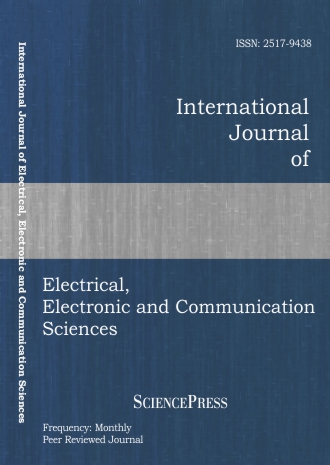
Scholarly
Volume:11, Issue: 3, 2017 Page No: 354 - 360
International Journal of Electrical, Electronic and Communication Sciences
ISSN: 2517-9438
Optimal Duty-Cycle Modulation Scheme for Analog-To-Digital Conversion Systems
This paper presents an optimal duty-cycle modulation (ODCM) scheme for analog-to-digital conversion (ADC) systems. The overall ODCM-Based ADC problem is decoupled into optimal DCM and digital filtering sub-problems, while taking into account constraints of mutual design parameters between the two. Using a set of three lemmas and four morphological theorems, the ODCM sub-problem is modelled as a nonlinear cost function with nonlinear constraints. Then, a weighted least pth norm of the error between ideal and predicted frequency responses is used as a cost function for the digital filtering sub-problem. In addition, MATLAB fmincon and MATLAB iirlnorm tools are used as optimal DCM and least pth norm solvers respectively. Furthermore, the virtual simulation scheme of an overall prototyping ODCM-based ADC system is implemented and well tested with the help of Simulink tool according to relevant set of design data, i.e., 3 KHz of modulating bandwidth, 172 KHz of maximum modulation frequency and 25 MHZ of sampling frequency. Finally, the results obtained and presented show that the ODCM-based ADC achieves under 3 KHz of modulating bandwidth: 57 dBc of SINAD (signal-to-noise and distorsion), 58 dB of SFDR (Surpious free dynamic range) -80 dBc of THD (total harmonic distorsion), and 10 bits of minimum resolution. These performance levels appear to be a great challenge within the class of oversampling ADC topologies, with 2nd order IIR (infinite impulse response) decimation filter.